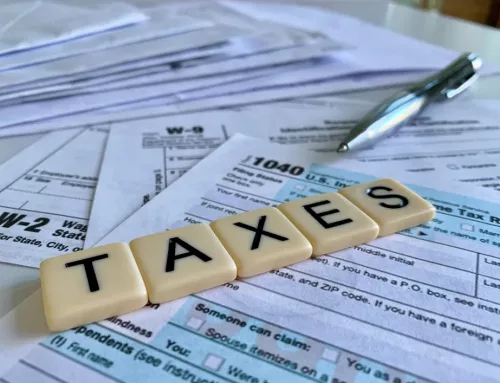There are different types of bankruptcy. Chapter 7 or liquidation bankruptcy is the most common form of a bankruptcy filing. The main objective of Chapter 7 bankruptcy is for the assigned trustee in bankruptcy to sell your assets to repay debts to creditors. Here, dischargeable types of debt include credit card bills, medical bills, and personal loans.
Most bankruptcy filings under Chapter 7 are completed in about 4 months. However, it will depend on your bankruptcy case. Seek legal advice from trusted Tacoma bankruptcy attorneys once you start considering bankruptcy.
Included in this article are:
- What happens when you file Chapter 7
- Retaining your property, such as a house or car
- Qualifications for filing bankruptcy Chapter 7
- How Chapter 7 bankruptcy works
- The need to consult with Tacoma bankruptcy attorneys
What happens when you file Chapter 7?
 Even though the bankruptcy trustee must ensure that the creditors are paid, a lot of debtors give up very little of their assets. If an exemption protects the entire amount of equity in your home, you will retain it. The majority of the filers do not risk any asset because they are allowed to retain their property.
Even though the bankruptcy trustee must ensure that the creditors are paid, a lot of debtors give up very little of their assets. If an exemption protects the entire amount of equity in your home, you will retain it. The majority of the filers do not risk any asset because they are allowed to retain their property.
Retaining your property such as a house or car
If you file for bankruptcy Chapter 7, you would be entitled to retain your home or vehicle if you are current on the loan payments and will exempt any of the equity. However, if you fall behind on paying your loans or are unable to maintain all your equity, most likely you will lose it. Chapter 7 could not be a good idea unless you are willing to give up certain properties.
Secured debts include mortgages and auto loans. If you will not be able to pay back, the lender might repossess the property. As a result, if you discharge the debt but you fall behind on payments, the lender has the right to seize the collateral, sell it, and add the proceeds to the balance owed. Even though you are current, the bankruptcy trustee may sell assets if you cannot secure your equity with an exemption. In certain cases, surrendering or redeeming the property are two other options that you may choose from.
What are the qualifications for filing bankruptcy in Chapter 7?
To be eligible for filing for bankruptcy Chapter 7, you must pass the bankruptcy means test. If your monthly income is less than the median income of the state, you automatically pass the means test.
If your salary is higher than the median income, you will be given a second opportunity to pass after deducting your living expenses. You will be eligible for Chapter 7 if you do not have a sufficient amount of money left for a 3 to 5-year debt repayment plan under Chapter 13.
If you qualify for filing Chapter 7, the bankruptcy court will consider whether you have substantially more income than what you need to meet your monthly payments.
How does Chapter 7 bankruptcy work?
You will be ready to file a bankruptcy petition once you have determined that you are eligible for Chapter 7 and that you will be able to retain your properties. This is what happens when you file bankruptcy:
- You will file a bankruptcy petition. You begin a bankruptcy case by filing paperwork with the bankruptcy court. You need to provide all the details of your assets including your wages, mortgages, land, and property transactions dating back up to ten years. Have a certificate of completion indicating that you received credit counseling from an accredited institution during the preceding six months. In most bankruptcy cases, the course can be completed in a few hours online or over the phone.
- Collection activities are prohibited once an automatic stay has been issued by the court. When you file for a petition in bankruptcy for the first time, an automatic stay will take effect immediately. This will stop creditor harassment, wage garnishment, repossession, and foreclosure. However, creditors may petition the court to have the automatic stay lifted.
- You need to provide supporting documents to the trustee at least five days before the creditors’ meeting. Depending on the conditions of the bankruptcy trustee, you might be required to submit your most recent tax return, as well as bank accounts, paycheck stubs, and other documents.
- The trustee will hold a meeting of creditors for each filer. You should expect the bankruptcy trustee to ask questions about your bankruptcy filing and finances. Creditors can also ask questions, but they rarely do.
- Before obtaining a discharge, you must complete a financial management course in addition to credit counseling.
- The bankruptcy discharge will be granted by the judge. Following the completion of the above conditions, the bankruptcy court will grant a discharge and the automatic stay will be lifted. However, the bankruptcy discharge would rarely mention that all of the filer’s debts are discharged. Non-dischargeable debts include child support, alimony, student loan debt, and tax debt.
- The bankruptcy case will be dismissed by the court. If the bankruptcy trustee has not allocated all nonexempt assets or you are embroiled in bankruptcy proceedings, the court will dismiss the case after obtaining the bankruptcy discharge.
Consult with Tacoma bankruptcy attorneys
It is not easy to manage debt and financial problems. Seeking legal help from experienced bankruptcy lawyers is highly advisable to have a fresh start with your finances. Contact our Tacoma bankruptcy attorneys at James A. Jones Attorney At Law for a free consultation.



